Bruce Lehrmann matter goes from bad to worse

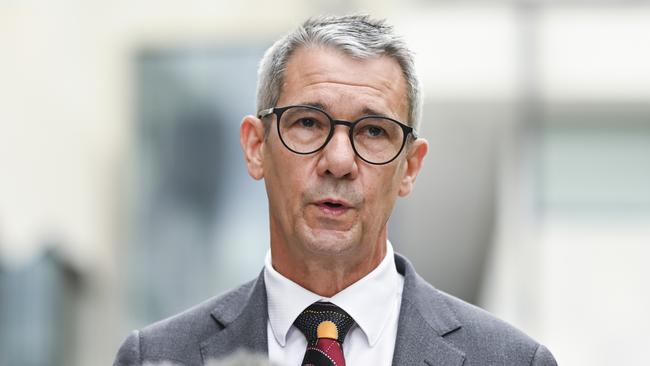
So far there is no indication that the ACT government will take any action against the territory’s former chief prosecutor Shane Drumgold despite the public board of inquiry’s damning findings against him. The ACT Greens-Labor government didn’t even sack him, instead allowing Drumgold to resign.
Based on the findings of the Sofronoff report, the ACT government could be demanding that Drumgold be charged with attempting to pervert the course of justice or the common-law offence of misconduct in public office.
These governmental failures were compounded in recent weeks by other institutions dragging their feet. The ACT Bar Association and the ACT Supreme Court, likewise, have shown no signs of upholding the integrity of the legal profession and the court system, respectively, after the former director of public prosecution’s misbehaviour during the nation’s most controversial sexual assault trial.
The people of the ACT are still waiting for the Bar Association to do what it is charged to do under the Legal Profession Act 2006 – to promote and enforce the professional standards, competence and honesty of the legal profession, and provide a means of redress for complaints about lawyers.
Bruce Lehrmann complained about Drumgold’s behaviour to the ACT Bar Association on December 9 last year – before the ACT government announced a public inquiry.
Lehrmann is still waiting for some sign of action. Nine councillors sit on the ACT Bar Council – the body at the top of the ACT Bar Association that “is responsible for regulating the professional conduct” of the practising barristers. The Bar Council wrote back to Lehrmann in May.
In a profession that charges by the hour, it pays to be unhurried. But, still, that doesn’t explain why it took the Bar Council five months to tell Lehrmann it needed more information on one matter, and as to the other issues raised by Lehrmann – including that the DPP “did not fulfil the prosecutorial obligation to ensure a fair trial” – the Bar Council would wait for the final report of the Sofronoff inquiry.
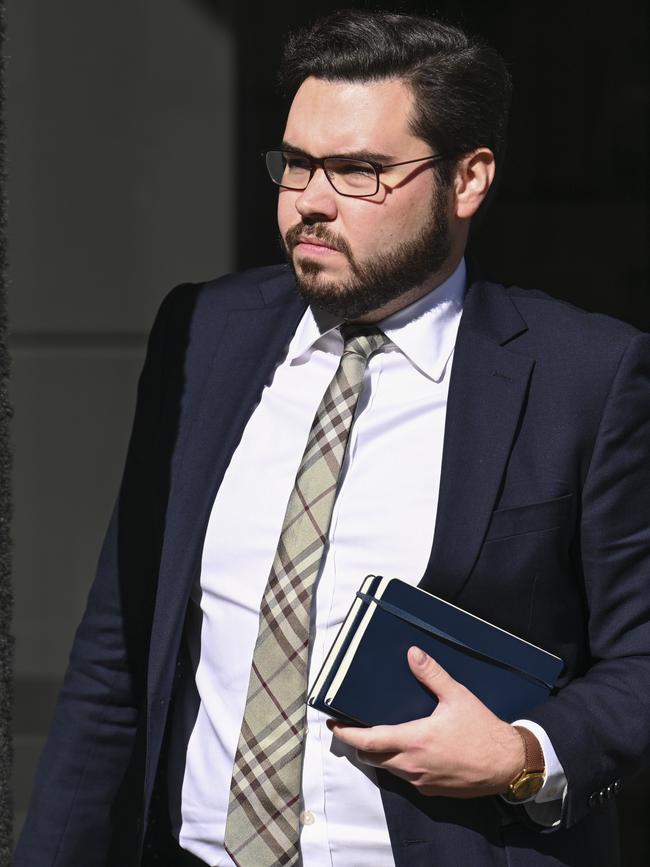
The Sofronoff report was released on July 30. A week later, the ACT Bar Council said the findings “will receive careful consideration … in the context of its role as the professional regulator of the ACT Bar”. It is September, and it’s crickets – still.
There is no indication that the ACT Bar Council has considered the report or intends to look at Lehrmann’s complaints against Drumgold.
Not unreasonably, this past weekend Lehrmann wrote back to them asking for an update.
“The findings of the report touched on some areas I raised in my complaint but uncovered alarming new examples of misconduct by Mr Drumgold that many were unaware of including further examples of deceit and non-disclosure to the defence team,” wrote Lehrmann.
The former Liberal staffer who has always maintained his innocence suggested the council “should adopt the inquiry report as evidence to support any investigation under way of Mr Drumgold”. While the council has power to reprimand a lawyer and order compensation, Lehrmann said those actions would be “woefully inadequate” given the serious findings in the Sofronoff report.
Instead, the ACT Bar Council should be referring this matter to the ACT Civil and Administrative Tribunal, the body with the power to recommend the ultimate sanction – that a lawyer be removed from the roll of practitioners.
Indeed, the Bar Council has the power under section 411 of the Legal Profession Act to refer this matter to ACAT – without starting or finishing an investigation – if the council is satisfied there is a reasonable likelihood that Drumgold would be found guilty by ACAT of unsatisfactory professional conduct or professional misconduct.
What is the ACT Bar Council waiting for? What more does it need than the Sofronoff report for it to act?
There were a number of tax scandals in the 1990s where lawyers who engaged in misconduct handed in their practising certificates. The relevant ruling bar councils said that was not enough to signal the seriousness of the misconduct, and instigated proceedings to have the lawyers removed from the roll of practitioners.
Walter Sofronoff KC found that the ACT’s chief prosecutor knowingly lied to the Supreme Court, engaged in serious malpractice and grossly unethical conduct, “preyed on a junior lawyer’s inexperience” and treated criminal litigation as “a poker game in which a prosecutor can hide the cards”.
Had Drumgold succeeded in dishonestly preventing Lehrmann from obtaining material that could have helped his defence, any conviction would have been set aside on the ground of a miscarriage of justice, Sofronoff found.
What further prosecutorial misconduct is required for the ACT Bar Council to step up?
Lawyers are also wondering why the Chief Justice of the ACT Supreme Court has gone so quiet – apart from spruiking her commitment to social justice a few weeks ago in a YouTube clip for the University of NSW.
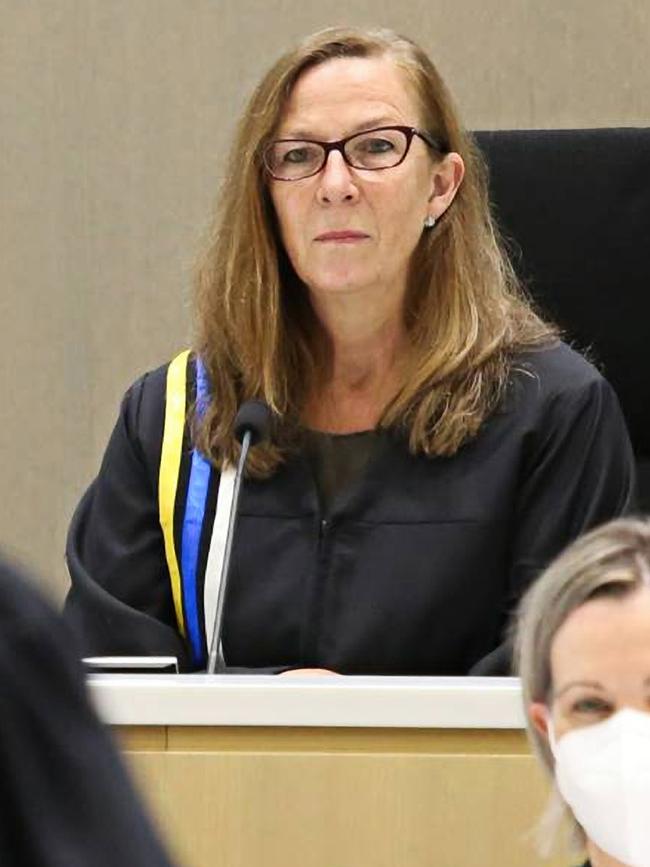
There are no signs that Chief Justice Lucy McCallum, the winner of the 2023 Alumni Award for Professional Achievement, is proposing to take any against a chief prosecutor who was found to have lied to her during a trial where a man could have gone to jail.
The Legal Profession Act makes it clear that nothing in the Act disturbs the inherent jurisdiction of the ACT Supreme Court. In other words, the court has the ultimate supervisory jurisdiction to deal with misconduct by lawyers.
The Chief Justice could initiate contempt proceedings, through the registrar of the Supreme Court, against the man who was found to have made false claims to her in court.
McCallum could initiate proceedings through the registrar of the Supreme Court to have Drumgold removed from the roll of practitioners.
In 2018, the prothonotary (a posh word for registrar) of the NSW Supreme Court took action to have disgraced former Labor MP Craig Thomson struck off the roll of practitioners.
The only discernible action taken at the ACT Supreme Court in relation to this matter is this: on September 14 the court set up an online file to make it easier for the media to follow Drumgold’s application for judicial review, launched last month to have the Sofronoff findings quashed.
To sum up, then, the ACT Supreme Court has taken no action against a prosecutor who was found to have lied to the Chief Justice but has taken action to assist the media in following Drumgold’s legal claim.
What makes this doubly weird is that the ACT Supreme Court didn’t offer the same ease of access to the media during the Lehrmann trial.
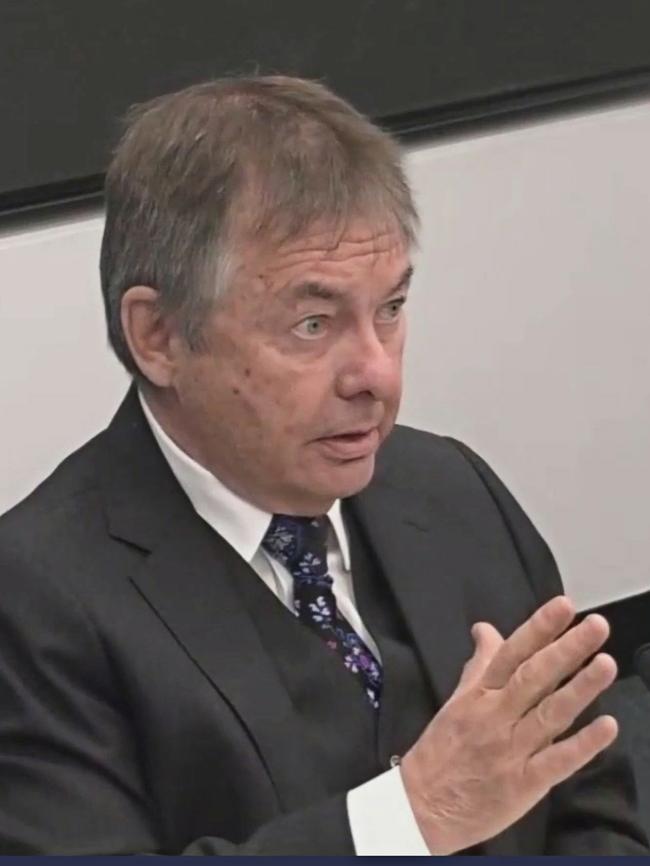
During the latter part of the public board of inquiry, Sofronoff sent Drumgold a notice of possible adverse findings against him. One was that Sofronoff could have found the DPP was not a fit and proper person to remain on the roll of barristers, or to remain in the Office of the Director of Public Prosecutions.
In response Drumgold’s lawyer, Mark Tedeschi SC, said those decisions were not part of Sofronoff’s remit.
And Sofronoff agreed. Instead, the judge set out the facts, made serious findings and left it to other institutions to do their job.
Those other institutions entrusted by the law, and by citizens, with upholding the administration of justice have done zip.
It would be unfortunate if this inaction leads people, not just lawyers, to wonder whether there is widespread institutional failure within the ACT – from the government to the legal profession to the judicial system.

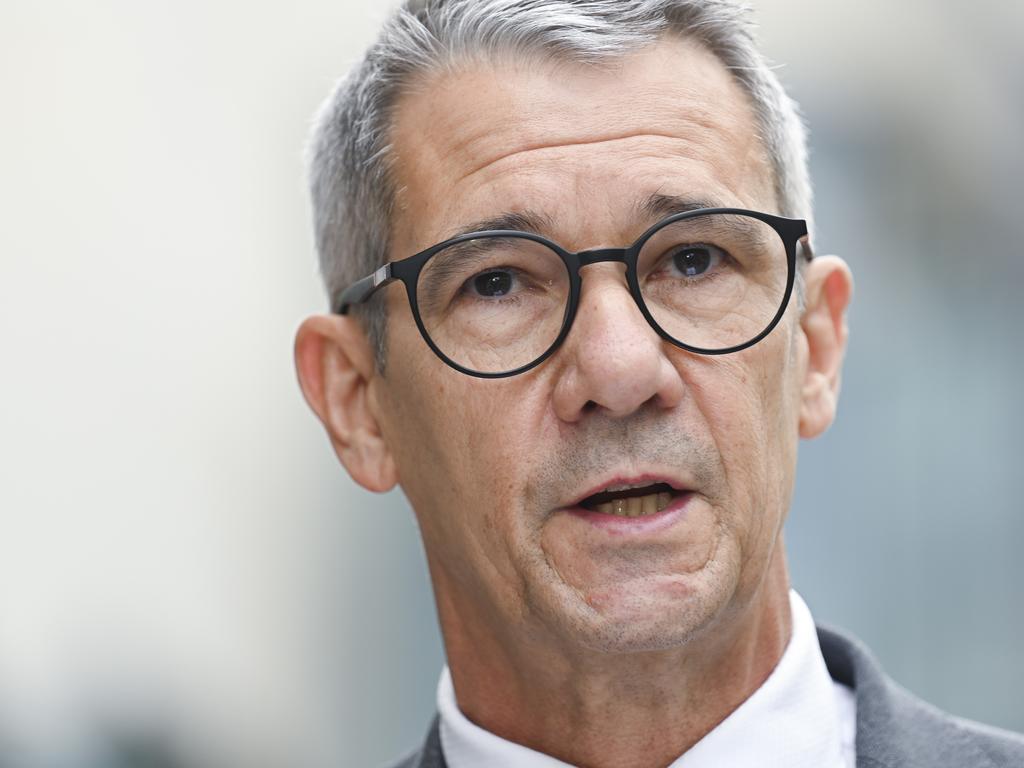
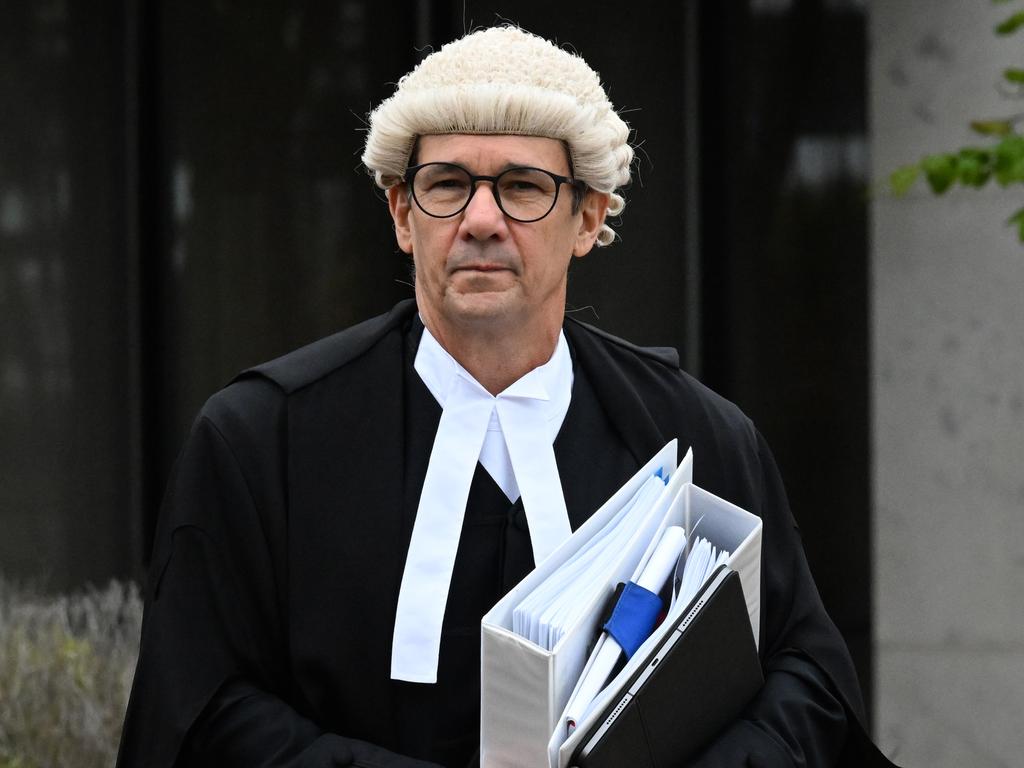
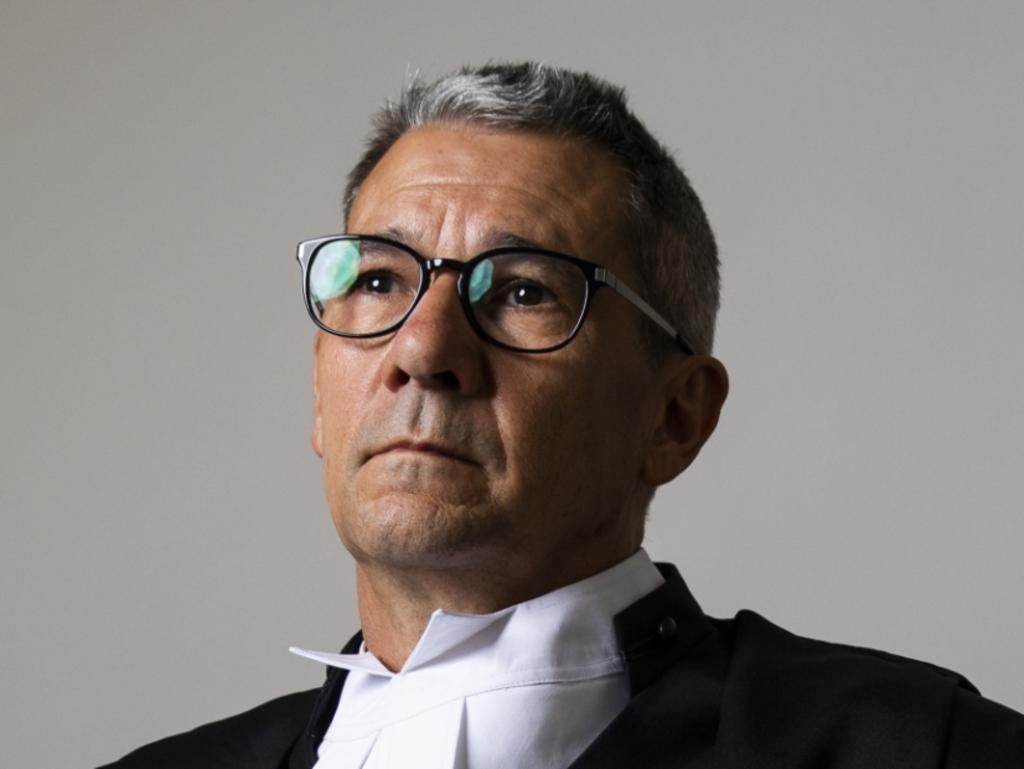



When it comes to the nation’s most controversial scandal, the Lehrmann matter goes from bad to worse. There are further disturbing signs of institutional failure in the ACT.